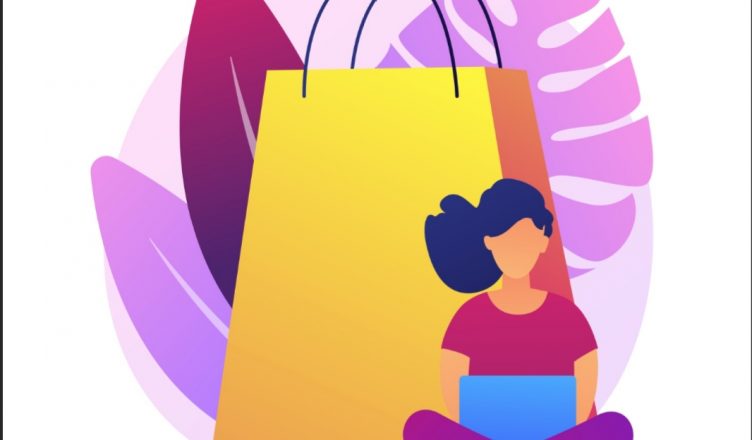I Oniomania, commonly referred to as compulsive shopping or shopping addiction, is likely the most socially approved addiction or obsession. We all are surrounded with advertisements that promise to make us happy if we purchase them.
The need to spend money regardless of need or financial resources is how it is defined. While many people like going shopping sometimes or as a hobby, obsessive shopping is a mental health issue that can have serious repercussions. Consult with an best Clinical Psychologist for more information on shopping addiction.
Shopping addiction is not formally recognized as a separate condition by the American Psychiatric Association (APA), and the disorder’s validity is hotly contested.
People who have this illness may become dependent on a specific good, like clothing or jewellery, or they may purchase anything, including food and cosmetic products, stocks, or real estate.
When someone has a shopping addiction, making purchases gives them the same thrill or high as someone who abuses drugs receives from consuming.
A person with a shopping addiction will attempt to recreate this feeling again and over again after their brain has connected shopping to this pleasure or high. Information on this addiction is scant.
There is conflicting evidence; however some studies suggest that women are more likely than men to develop this addiction. According to additional studies, both men and women are equally susceptible to getting the condition.
You may take help from the Best Clinical psychologist near me if you are facing shopping addiction issues.
Signs and symptoms of shopping addiction
- Shopping to relieve stress on a daily or monthly basis with an obsession with buying things, maxing out credit cards, or opening new ones without paying off balances
- After completing purchases, experience extreme joy or excitement
- Purchase stuff that aren’t necessary, steal, or lie in order to continue shopping
- Feel bad or guilty about goods but keep going shopping
- Be unable to manage their money or pay off debt
- Fail to quit compulsive shopping
Causes of shopping addiction
Some causes of compulsive shopping are as follows:
- Shopping as a coping mechanism for disappointment, stress, rage, or anxiety
- Having the impression that your spending is out of control and affecting your relationships with family and friends
- Pleasure and worry mixed together while shopping
- Feeling like you’re sneaking something illegal while shopping
- Feeling extremely guilty or sorry for going shopping, especially if it violates commitments to oneself or a loved one
- Purchasing items that are never or hardly ever utilized, or purchasing purely out of financial obligation
- Lying to friends and relatives about one’s considerable purchasing habits
- An obsession with credit cards and money that revolves around how much has been spent, how much will be needed for purchasing, and inventive account juggling to make shopping possible.
Treatments for shopping addiction
People could cope up on their own, but it might be possible that therapy or counseling is helpful for them. There are several things you may do in the interim to lessen the negative effects of compulsive spending and regulate the uncontrollable behavior. You can start up with making your own budget.
However, despite the lack of adequate evidence, compulsive shopping does seem to respond favorably to a variety of treatments, such as drugs, self-help literature, self-help groups, financial counseling, and cognitive behavioral therapy (CBT).
Recovery from this complicated condition requires assistance in identifying the underlying causes of your shopping addiction as well as learning how to fight your tendency to use shopping as a coping mechanism.
Your excessive purchasing may have harmed your relationships. Additionally, getting psychological support can assist you in making apologies and regaining the trust of individuals who may have been harmed by your actions.
Additionally, you might discover that therapy enables you to develop deeper connections with others by helping you learn how to communicate with them in better ways.
Coping with shopping addiction
- You need to find other ways to spend the time if you want to break the cycle of buying things to try to feel better about yourself.
- Giving another family member the responsibility of going shopping for needs like food and cleaning supplies, at least temporarily, can be helpful while you look for help.
- It’s a smart option to go shopping only with family or friends who don’t overspend since they can motivate you to restrict your spending.
- Removing credit cards and carrying only a small amount of emergency cash will help you avoid making impulsive buying behavior.
- You may also try setting some financial goals for yourself. Because you’ll have a motivation to do so, setting goals will make it simpler to reduce your expenditure. The idea here is to draw a clear line between saving money and being able to do the activities you enjoy. Creating this habit can also allow you to concentrate your focus elsewhere and, as a result, lessen the need to indulge your addiction.
Feel free to take help from an best Clinical Psychologist to learn more about how to cope up with shopping addiction problem.
